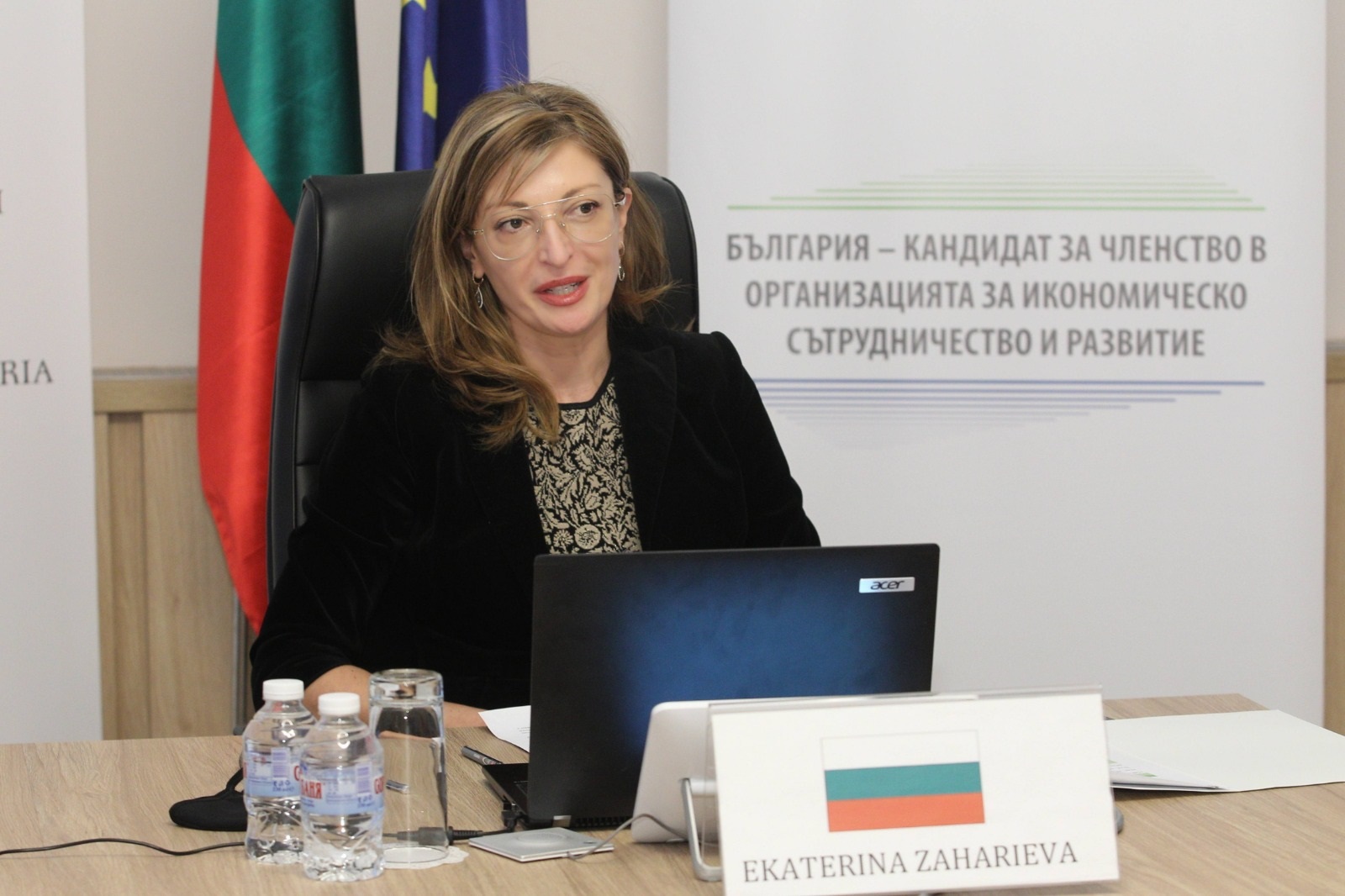Ekaterina Zaharieva: “We must use artificial intelligence for a more peaceful, humane and prosperous world”
27 January 2021 News
Welcoming speech from the Deputy Prime Minister and Minister of Foreign Affairs to the participants in the online seminar "Digital Economy and Artificial Intelligence. Creating the digital future of Bulgaria"
Dear Mr. Knudsen,
Your Excellencies,
Ladies and gentlemen,
Thank you for organizing this seminar, which will discuss the progress of our country in the field of digitalization and the benefits of using artificial intelligence, as well as the risks it faces.
The coronavirus pandemic is the topic that dominates every discussion and debate because it has changed our worldview. It took away the most basic human need, namely to communicate with each other. However, thanks to the bitter experience of the socio-economic consequences of the pandemic, we have realized the invaluable opportunities that digitalisation and digitalisation offer us. When we were isolated at home, away from our loved ones, away from the workplace, it was digital technology that helped our societies continue to function and people communicate freely. We ordered food from our phones, made video calls to see our loved ones, and work and study from home became the norm.
The topic of the role of technology, the transformation of the economy and artificial intelligence has never been higher on the agenda. The introduction of technology into our lives is not an end in itself, but a tool that we can use with the best of intentions to continue to build a more peaceful, humane and prosperous world.
Of course, new technologies carry unknown risks, predominantly of ethical nature. We must ensure that they do not fall into the hands of people with bad intentions and selfish goals.
I guess you are all familiar with how artificial intelligence can be used as a powerful weapon. Criminals have been using machines since yesterday to commit a number of criminal acts involving infiltration of information networks or databases from critical infrastructure. Terrorists have unfortunately shown us how drones can kill more effectively than the human hand.
We politicians are also discussing with great concern how to ensure the inviolability of human life, as artificial intelligence is used in the workplace today, in the provision of administrative services by collecting huge amounts of personal data. Yes, artificial intelligence uses an algorithm, but it is man-made and can be wrong, it can be harmful, it can be criminal.
Last year, Elon Musk, one of the pioneers in the digital world, warned: "Remember my words, artificial intelligence is more dangerous than nuclear weapons."
And really. Imagine a system that rules the entire planet automatically, and at one point decides to kill half of humanity because resources are depleted.
Bulgaria has a strong tradition in science and innovation and in the 80s of the twentieth century, because of its strong high-tech industry it was called "The Silicon Valley of Eastern Europe". This is evidenced by the fact that the Bulgarian Academy of Sciences, founded 152 years ago, is nearly 10 years older than the modern Bulgarian state. It is natural for us to embrace the idea of digitalizing the economy. The most important challenge before us in this direction will be to create strong links between educational institutions and business, to help Bulgarian citizens to be well qualified, adaptable and prepared to meet the requirements of the labour market. For this reason, a large part of the funds provided by the National Recovery and Sustainability Plan will be directed to the digital transformation of our economy.
Our country has already built a reputation as a regional centre in the field of IT and high technology. Despite the pandemic, the software services sector, for example, grew by 10% in 2020, and 35% of those employed in the sector are women, which puts Bulgaria in first place under this indicator in the EU, with more than twice the average Union values. It accounts for over 3% of the country's total gross domestic product. For example, I will only give that the artificial intelligence in the latest generation of Mercedes cars was created in Bulgaria. A few days ago, in the British newspaper "Times" I read about 4 start-up companies that have changed the fintech industry. One of them was founded by a Bulgarian woman and already has a capital of 300 million pounds. The company offers everyone to easily manage the income from their pension funds directly from their mobile phone.
Another Bulgarian fintech company creates personal debit cards that help manage any business expenses. This allows the company's managers to automate payment processes, control cost and receive automatic analyses and reports. A third Bulgarian company is already a world leader in "smart solutions" for the home and the management of all home systems: for lighting, heating, cooking, entertainment.
I believe that it is the OECD, an organization that is a sincere supporter of the idea of digitalization, that will support Bulgaria through its experience, recommendations and guidelines in our efforts to create a more sustainable and prosperous economy. We highly value our partnership with the OECD and in recent years we have clearly shown that it is a priority for us to properly prepare for full membership in the organization. I hope that with joint efforts we will be able to transform our economies and return to the path of sustainable growth, and that, thanks to the digitalisation of the economy, humanity will continue to find solutions to the challenges we face. Thank you!
